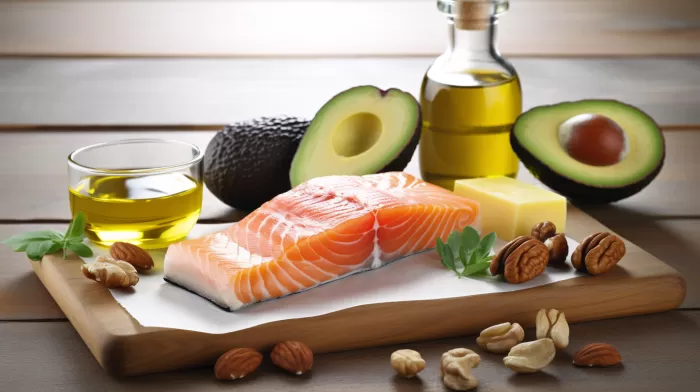The myth that eating fat makes you fat has been debunked in recent years, as researchers have discovered that including healthier fats in your diet can actually help you to lose weight and improve overall wellness. Fat is a complex nutrient and our bodies require it to function properly. This article will help you understand the good, the bad, and the healthy types of fats and how to incorporate them into your diet for improved health and weight loss.
The Importance of Eating the Right Fats
Although fat is denser in calories than protein or carbohydrates, it’s the type of fat you consume that makes the biggest difference in your health. When your body is overweight or obese, it’s struggling with inflammation, which can lead to a variety of chronic health conditions. Unhealthy fats, such as trans fats and hydrogenated fats found in processed foods, contribute to this inflammation.
Alternatively, healthier fats, like omega-3 fatty acids found in fish, can help to soothe inflammation. In an eight-week study of 324 overweight participants aged 20 to 40 years old, researchers discovered that regular salmon consumption reduced blood markers of inflammation by almost a third 1.
The Problem with Low-Fat Diets
Low-fat diets often encourage a higher intake of sugar in order to compensate for a loss of taste. This is a poor trade-off because refined sugar can trigger insulin secretion, which causes your body to store more fat. A low-fat diet may initially help reduce body fat, but in the long run, it is more likely that the fat will return in unwanted areas, such as cellulite.
Keys to Eating Fat and Losing Weight
- Eliminate processed foods containing trans fats and partially hydrogenated oils: Avoid vegetable shortening, margarine, or oils containing partially hydrogenated oils and fats. Be aware that unhealthy snack foods such as French fries, doughnuts, pastries, muffins, croissants, cookies, and chips are high in trans fats.
-
Minimize consumption of dairy fats: Dairy fats contain cholesterol and saturated fat, which can increase your risk of cardiovascular disease. Many people find they are able to lose weight when they cut back on dairy fat consumption.
-
Minimize consumption of animal fats: Animal fats are high in cholesterol and saturated fat, which are linked to chronic health conditions like heart disease, cancer, and diabetes 2.
-
Increase healthier oils: Incorporate fish oil, krill oil, olive oil, or flax oil into your diet. Create salad dressings with olive or sesame oil as a base and add balsamic vinegar and herbs for flavor.
-
Increase healthier fatty foods: Include raw nuts (e.g. hazelnuts, almonds, Brazil nuts, cashews), seeds (e.g. sesame seeds, pumpkin seeds), fruits (e.g. avocado, coconut), and fish (e.g. salmon, cod, tilapia) in your diet.
Interestingly, low-fat diets have been linked to excess weight in certain areas of the body, such as thighs, buttocks, and belly. Furthermore, studies show that animals on low- or no-fat diets were more likely to develop fatty liver disease than those consuming a regular diet 3.
In conclusion, including healthy fats in your diet is crucial for improving health and assisting in long-term weight loss. Remember to eliminate unhealthy fats and embrace healthier ones to maximize your overall wellness.
- Ramel A, Martinez JA, Kiely M, Bandarra NM, Thorsdottir I. Effects of weight loss and seafood consumption on inflammation parameters in young, overweight and obese European men and women during 8 weeks of energy restriction. Eur J Clin Nutr. 2010 Sep;64(9):987-93 ↩
- T. Colin Campbell, Ph.D., and his associates showed the link between consuming more than 10 percent of one’s diet as animal protein and the diseases of affluence (cancer, heart disease, diabetes). ↩
- Studies have shown that laboratory animals on a low- or no-fat diet developed fatty liver disease more often than those on a regular diet. ↩



